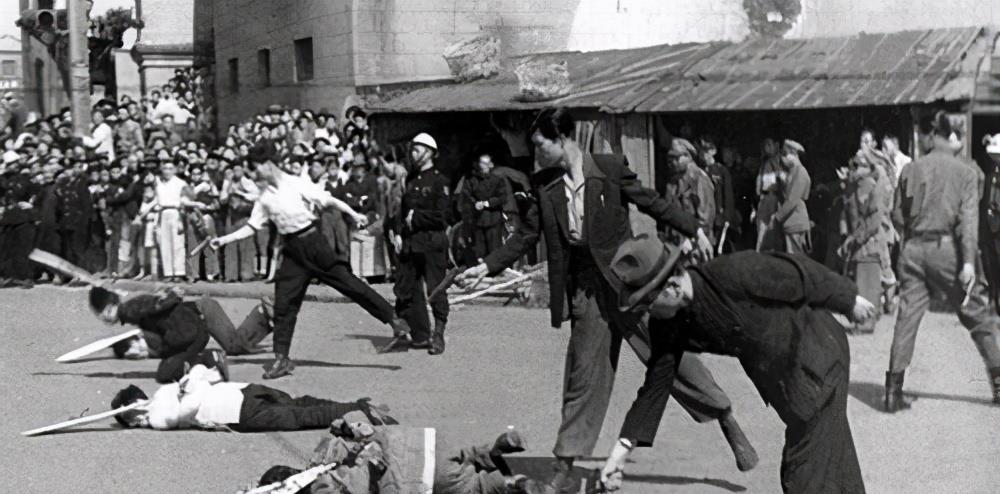After the end of the Sino-Japanese War, the decadent Qing government ceded Taiwan to Japan. However, the Taiwan military and people did not stop there, and the Taiwanese military and people on the island also played the slogan of "I would rather everyone die in battle and lose Taiwan than give up to Taiwan." The Qing army on the island of Taiwan did not obey the order to withdraw to the mainland, but together with the people of Taiwan resisted the aggression of Japanese imperialism, and a Guard division of the Japanese army that first entered Taiwan was crippled and had to continue to increase troops to Taiwan.

In the half century of Japan's invasion of Taiwan, more than 600,000 Taiwanese people have died in rebellion against Japan's colonial aggression. Later, some Taiwanese people ran to the mainland, hoping that the mainland would recover Taiwan after the completion of the democratic revolution, and one of them was a very important figure, that is, Cai Xiaoqian. In 1908, Cai Xiaoqian was born in Changhua County, Taiwan Province. In 1924, Cai Xiaoqian came to Shanghai to study in the Department of Social Sciences of Shanghai University founded by the Communist Party of China, and under the influence of the ideas of Qu Qiubai, Ren Bishi and others who were teaching at that time, Cai Xiaoqian joined the Communist Party of China and participated in the Shanghai Taiwan Youth Association of progressive youth organizations.
In 1926, Cai Xiaoqian returned to Taiwan and participated in the founding of the Communist Party of China in 1928. After Cai Xiaoqian returned to Taiwan, he used newspapers and other media to propagate revolutionary ideas. Cai Xiaoqian's behavior was noticed by the Japanese and wanted by the Japanese, and Cai Xiaoqian later fled to Zhangzhou, Fujian Province, in order to avoid being pursued by the Japanese.
In 1932, after the Red Army attacked Zhangzhou, Luo Ronghuan, director of the Political Department of the First Red Army, arranged for Cai Xiaoqian to go to Ruijin to study at the Lenin Normal School. In 1932, Cai Xiaoqian became the director of the Soviet Anti-Imperialist League. When he was in Ruijin, the old revolutionary area of Jiangxi, Cai Xiaoqian and Mao Zeqin and others formed a deep friendship and often chatted until late at night. Cai Xiaoqian was also the only Taiwanese to participate in the Long March, and after arriving in northern Shaanxi in 1935, Cai Xiaoqian served as chairman of the anti-imperialist alliance and later as chairman of the anti-Japanese alliance.
After the outbreak of the War of Resistance Against Japanese Aggression, Cai Xiaoqian served as the director of the Field Political Department and the minister of enemy work at the headquarters of the Eighth Route Army, responsible for the management of Japanese prisoners and propaganda work against the enemy. In September 1945, Tsai was appointed Secretary of the Working Committee of Taiwan Province. In 1946, Cai Xiaoqian secretly infiltrated Taiwan and launched a rent and interest rate reduction campaign in Changhua, Taipei and other areas, and launched several large-scale campaigns to organize students and migrant workers to attack local Kuomintang government agencies in Taiwan. With the defeat of the Kuomintang forces in Taiwan, the Kuomintang secret service system began to step up its crackdown on the party organizations in the interior of the island, and they soon set their sights on Cai Xiaoqian.
After the founding of New China, Cai Xiaoqian's life began to gradually deteriorate, frequently embezzling funds for eating, drinking, and pleasure, and frantically in love with his sister-in-law Ma Wenjuan, who had been plotted against by Kuomintang agents at that time. In January 1950, Cai Xiaoqian was first arrested by Kuomintang agents, but was soon released. Three months later, Cai Xiaoqian was arrested again and immediately defected. Cai Xiaoqian was the head of the underground party, and his defection led to the almost total annihilation of the taiwan underground party and the arrest of thousands of people, including Lieutenant General Wu Shi, then deputy minister of national defense. From 1949 to 1950, during Su Yu's preparations for the liberation of Taiwan, Lieutenant General Wu Shi handed over all of Taiwan's military deployment plans to the East China Bureau, and after Wu Shi's arrest, the Kuomintang side quickly changed its military plan.